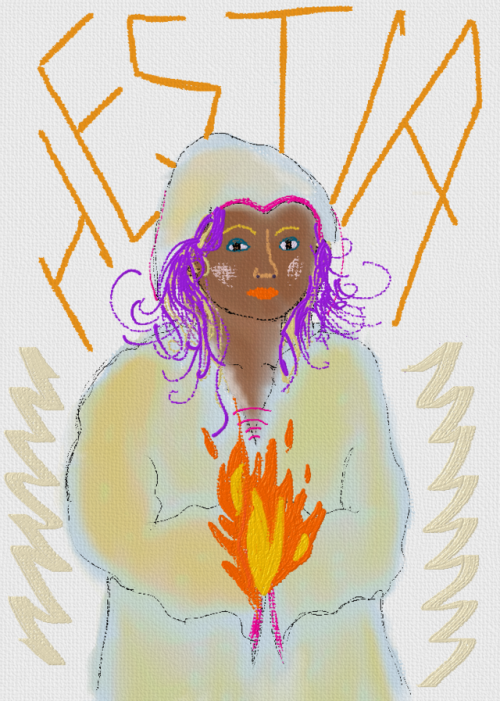Sounds-of-my-silence - Tumblr Posts
Lorem Ipsum
Lorem ipsum dolor sit amet
Am I more than you bargained for yet?
Mystic-lite and substance-strained
Foolish, listless, garbled, pained
Seeking silence, craving peace
Murdering dreams in waves of sleep
Medicated though I be
Restless fervor powers me
And of this silence none can tell
What ought to be and ought to hell
So page by page here writ my mind
Hollowed out I now confide
In you my readers, friends, and foes
To look beyond the stilted prose
And find the dreams I all but lost.
My rhyme declines.
But finding you is worth the cost.

My sociological theory professor brought up an interesting point that sociological functionalists and religious fundamentalists (specifically evangelicals) are strange bedfellows in the chamber of American political conservatism. Concepts and their connections are my lifeblood, so I’ve tried to diagram my reasoning for why that may be.
The primary differences between functionalism and fundamentalism are in their foundations of knowledge. The former is a theory that attempts to explainhow society works in a scientific way. The latter is a religious framework that attempts to explain the nature of society, and of the natural and spiritual worlds, from a literal reading of a religious text. So functionalists and fundamentalists, although they may overlap in practice, can in theory be treated as mutually exclusive.
Both functionalists (in the school of Durkheim) and fundamentalists view individuals as subsumed and controlled by a higher power. To the functionalist, that power is society; to the fundamentalist, it is an almighty God.
Both systems of thought also believe that the components of society fit together in a way that produces a certain desirable result. To the functionalist, this result is societal stability, although dysfunctions exist. To the fundamentalist, “all things work together for the good of those who love God,” but sin creates stumbling blocks and hiccups along the way.
Where the systems converge in the American political system is in their resistance to change. Functionalists lean conservative because quick political or societal upheavals undermine stability. Fundamentalists tend to be conservative because their belief in God’s “intended order” of the universe, which, in the comtemporary American context, means the world how it used to be before the sinful fall of America. Weber’s The Protestant Ethic and the Spirit of Capitalism, although not a functionalist analysis, provides ample explanation for why fundamentalists who subscribe to the spirit of Calvin generally view criticisms of capitalism and the beginnings of the workers’ movement to be the geneses of this sinful downfall.
(yes, I am this much of a nerd)
Let all those who labor in behalf of the community labor in their behalf for the sake of heaven--for the merit of their fathers upholds them and their grace endures forever.
The Talmud (Pirke Avot)
How can I cope with the shame of this perfection? My unstoppable force meets your immovable object The sacred pulsar pings off my dead ventricle walls Consuming fire, cauterize my heart before I die a thousand deaths by smoke inhalation. The good Lord left off your allergy labels WARNING: CONTAINS THE UNIVERSE And your stars aligned with mine though you know not who you are You are Castor and I am Pollux You are justice and I am praise And what looked like the Fates' collision course Was an ill-fated skew line Eros striking us with different arrows Cast down but forsaken Verboten but not forgotten Symbiotic but not uniform You will never know how I die daily at your altar Though I paint the night sky with my blood. Now we see through a glass darkly And though never face to face Your smile is worth the sacrifice.
It was only Yesterday that the village collapsed.
The oxygen in my blood has become an act of rebellion Invisible Devalued Unless I inhale monoxide the hegemony scoffs They don’t know how my mind has reorganized Neural pathways undone and re-bridged by latent trauma Like a swarm my cells adapt and restructure and assimilate Screaming past each other in silent chaos.
I am not permitted to posses my history. Canned and processed in capitalist factories And boycotted by radical enclaves Exploited and forgotten Seldom do they recognize my soul.
But my humanity is resistance. My identity is power. My breathing is hope. My orgasm is liberation. My name is wisdom.
And no one sees.
Because I’ve come just far enough for those you hate to look like me.
Magma
I’ve made it to eighteen leagues underwater Climbing higher But drowning beneath mountains
Breathing is dead to me Lungs accept only air And you provide only gravel
There’s not a noose long enough to dip its knot this low So my spindle claws can grasp its fray Seize its mass, and palpate over its bristles
Gravel cares not who I am It assuages stomach and throat with streams of dawny pills To alter my sense of color
But even under miles of quartzite Coarse amethyst Fractured glitz of oppressive perception
The surface of this ocean’s glassy clear I haven’t seen the sky But I know it’s evening hue is made for me

Look what I found in my sociology notes lol :)
Today, like every other day, we wake up empty and frightened. Don’t open the door to the study and begin reading. Take down a musical instrument; Let the beauty we love be what we do. There are hundreds of ways to kneel and kiss the ground.
Rumi
Home is somewhere out there Somewhere you’ll be safe Sleep my child and dream of that new land
Avatar, “New Land”
Remember also that the sun is a star.
@mistixs
When my heart is faint, lead me to the rock that is higher than I.
Psalm 61:2

Guanyin (Kuan Yin, Guan Yin), the bodhisvatta and Goddess of compassion.
“One of the several stories surrounding Quan Yin is that she was a Buddhist who through great love and sacrifice during life, had earned the right to enter Nirvana after death. However, like Avlokiteshvara, while standing before the gates of Paradise she heard a cry of anguish from the earth below. Turning back to earth, she renounced her reward of bliss eternal but in its place found immortality in the hearts of the suffering.”
http://www.holymtn.com/gods/kuanyin.htm
Like Jesus, Guanyin literally gave up heaven to help the suffering reach God. If that’s not beautiful, I don’t know what is. I can only try to emulate this heart of compassion and allow my selfishness to fall away so that my life will become a tome of service and love.
Episode
Gazing coolly back Flattened eyes to flattened mirror Six steps, fifteen feet To the mattress Ninety degrees, reverse Thin quilted cover over Thin skin over Thin blood in a Thin heart beating One Two Three
H2O means water and O means oxygen And chemical bonds keep Numbers and figures In order and propriety While reactive compounds Scrimmage in cranial nooks Thinner than 37,000 feet
Cannons of yesterday are memory’s wares To reinforce serotonin’s last stand Amygdala Armada is taking heavy losses Five in seven out Thirteen minutes till 3 Means time to prepare the funeral pyre
Tailor Kleenex’s surrender flag in tow Aching eye sockets open shut raise it high And in one last rebellion Fill the stark white dusty face With lacrimal floods, Crumple up And let gravity arrest it into forgetful cellophane
Noticing I’m short on flint The pyre is postponed and Reverse, ninety degrees Deep breath in breath out Apathy allows the sitting silence To shutter the restless eyes And drag themselves to slumber’s lair
The sequel will be better.
Externalization is the ongoing outpouring of human being into the world.
Peter Berger, The Sacred Canopy
Someone asked a good question yesterday that got me thinking: why are some mythologies more “mainstream” than others? Where I’m from, everyone knows at least a couple things about the Egyptian, Norse, and Greek (and sometimes Roman) pantheons, but no one’s ever discussed those of East Asia, or South America, for example.
My theory: Eurocentrism and colonialism.
Egypt, Greece, and Rome all have some relevant proximity to the history of Christianity. Egypt features prominently in the Exodus, and Greece and Rome were important cultural shapers in the time of Jesus and Paul. When Christianity spread and gained the force of empire through Constantine and others and spread up through Europe, it dominated nearly all the local traditions in its wake. This domination continued through the European colonization of the Americas, Africa, India, and others -- history is written by the colonizers, so it makes sense that the prominent revival pantheons among European-descended pagans aren’t those of the conquered people but those of their own people (Norse) and those that are “necessary” to provide historical weight to Christianity.
Completely conjecture, but this was interesting to think about today.





